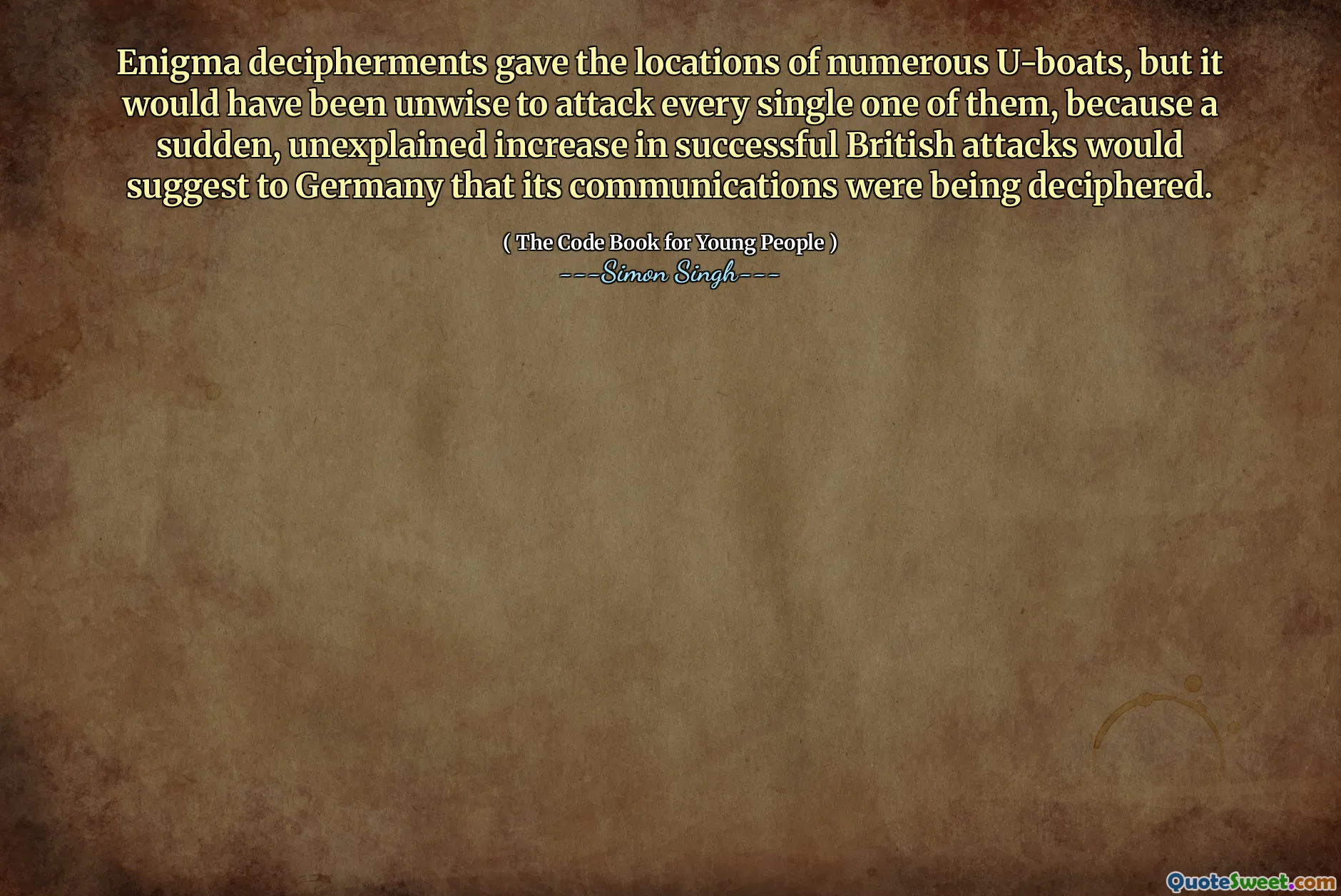
Enigma decipherments gave the locations of numerous U-boats, but it would have been unwise to attack every single one of them, because a sudden, unexplained increase in successful British attacks would suggest to Germany that its communications were being deciphered.
This quote highlights a fascinating strategic dilemma faced during wartime intelligence efforts, particularly with the breaking of the Enigma code during World War II. It draws attention to the delicate balance between immediate tactical advantage and long-term strategic secrecy. The fact that British intelligence chose not to attack every discovered U-boat underscores the importance of subtlety in intelligence operations — too obvious an increase in successful attacks would raise suspicion and could have led the Germans to change their encryption methods or communication protocols. This scenario illustrates the nuanced complexities of warfare beyond just brute force, where knowledge and secrecy become paramount weapons.
From a broader perspective, it also speaks to the ethical and tactical decisions intelligence agencies must make when possessing critical information. How much advantage is too much? Acting decisively on every piece of intelligence could yield quick victories, but it risks compromise and potentially losing the upper hand in the long run. This quote from Simon Singh’s The Code Book for Young People provides an engaging insight into the intelligence game, reminding us that sometimes restraint can be just as powerful as direct action. It invites reflection on the intricate interplay between cryptanalysis, military strategy, and the broader consequences of decision-making in conflict, a poetic reminder that sometimes being invisible and subtle is the most potent strategy of all.






